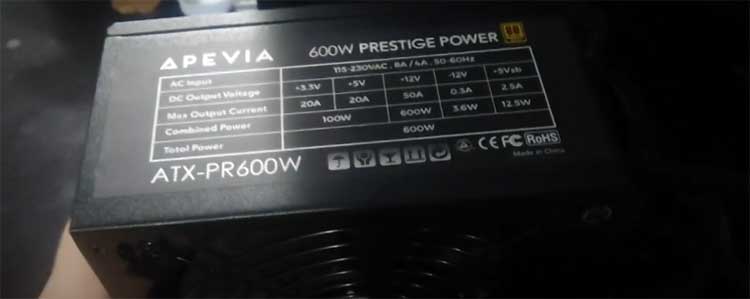I’ve dropped my phone more times than I’d like to admit, and every time, I’m grateful for the case that saves it from a cracked screen or dented frame. When it comes to protecting my lifeline to the world, I’ve narrowed it down to two brands: Caseology and Spigen.
In this article, I’m breaking down their key features, weighing their pros and cons, and sharing my real-world experience to help you decide which brand deserves your trust. I’ll cover everything you need to make an informed choice.
A Brief Comparison Table
| Feature | Caseology | Spigaen |
| Price Range | $10–$30, budget-friendly | $12–$45, slightly pricier |
| Design Variety | Bold, colorful, trendy patterns | Sleek, minimalist, professional |
| Protection Level | Solid for everyday drops | Top-tier for heavy-duty needs |
| Grip | Textured, secure hold | Smooth but reliable grip |
| Material Quality | TPU, polycarbonate, some hybrid | Premium TPU, polycarbonate, metal |
| Wireless Charging | Fully compatible | Fully compatible |
| Customization Options | Limited, preset designs | More options on select models |
| Warranty | 1–2 years, model-dependent | 2 years across most models |
| Weight | Lightweight to moderate | Slightly heavier for rugged cases |
| User Appeal | Casual users, style-focused | Power users, durability seekers |
My Journey With Smartphone Cases
I’m no stranger to the panic of watching my phone slip from my hand, tumbling toward the pavement. Over the years, I’ve tried countless cases, but Caseology and Spigen consistently stand out. Both brands have saved my devices from disaster, yet they cater to slightly different needs.
I’ve used Caseology’s Parallax for its grippy texture and Spigen’s Rugged Armor for its tank-like durability. My goal here is to share what I’ve learned from using their cases daily, from commutes to coffee shop fumbles, to help you pick the right one.
Understanding Caseology: Style Meets Affordability
Caseology caught my eye with its vibrant designs and wallet-friendly prices. Their cases, typically ranging from $10 to $30, don’t skimp on quality.
I’ve used their Parallax and Vault series, and they strike a balance between aesthetics and protection.
The brand, a sub-label of Spigen, focuses on trendy patterns and ergonomic designs, making it a favorite for casual users like me who want a case that looks as good as it performs.
Key Features of Caseology Cases
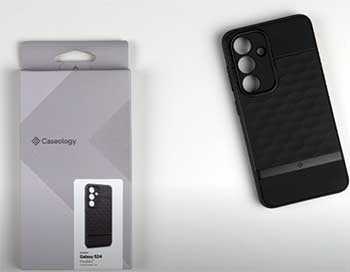
Caseology’s lineup is diverse, but a few features make them stand out.
The Parallax, for instance, has a 3D geometric pattern that’s not just eye-catching but also improves grip. I’ve found it easier to hold during long scrolling sessions.
Their cases use a dual-layer system—soft TPU for shock absorption and a hard polycarbonate shell for structure.
Most models support wireless charging, which is a must for me since I rely on my charging pad daily.
They also include precise cutouts for buttons and ports, ensuring I don’t fumble with my volume rocker.
Pros of Caseology
- Affordable Pricing: Caseology cases are a steal, typically priced between $10 and $30. I grabbed a Parallax for just $15 during a sale, and it’s been a reliable companion for over a year. This makes Caseology accessible for students, young professionals, or anyone who doesn’t want to splurge on a case but still needs solid protection.
- Stylish Designs: The brand’s bold, trendy aesthetics are a major draw. From the Parallax’s 3D geometric patterns to the Skyfall’s vibrant translucent hues, Caseology cases turn heads. My teal Parallax has sparked countless conversations at coffee shops, making my phone feel like a fashion accessory.
- Decent Protection: Caseology’s dual-layer construction—soft TPU for shock absorption and a hard polycarbonate shell—handles everyday mishaps well. My phone survived a 4-foot drop onto a tile floor with no scratches or cracks, thanks to the Vault’s military-grade certification. It’s reassuring for casual clumsiness.
- Lightweight Build: These cases add minimal bulk, which I love since I’m always slipping my phone into tight pockets or small bags. The Parallax, for instance, feels barely there compared to bulkier competitors, keeping my device sleek and portable.
- Grip-Friendly: The textured surfaces, especially on models like the Parallax, provide a secure hold. I’ve never felt my phone slipping during long scrolling sessions or while juggling groceries. This grip reduces the heart-stopping moments of near-drops.
- Wide Compatibility: Caseology ensures precise cutouts for ports, buttons, and cameras across various phone models. I’ve used their cases on both iPhone and Samsung devices, and everything aligns perfectly, making charging and photography hassle-free.
- Color Variety: With options ranging from muted pastels to bold neons, Caseology caters to diverse tastes. I’ve switched between their black and coral Vault cases depending on my mood, adding a personal touch without needing multiple cases.
Cons of Caseology
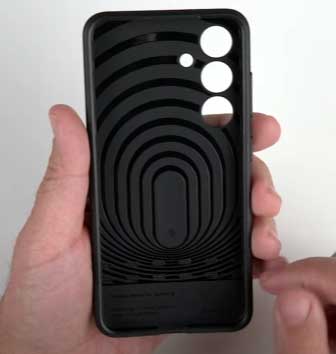
- Limited Heavy-Duty Options: Caseology’s cases are great for daily use but fall short for extreme conditions. If you’re working on a construction site or hiking rugged trails, the protection might not suffice. My Parallax held up for minor drops but wouldn’t inspire confidence for a 10-foot fall.
- Durability Over Time: After about a year, my Parallax showed signs of wear, like slight yellowing on the TPU edges and minor scratches. While functional, it didn’t stay pristine, which was a letdown compared to pricier brands.
- Fewer Customization Options: You’re limited to preset designs with no modular or personalized options. I wished I could tweak the Parallax’s pattern or add a custom logo, but Caseology sticks to fixed styles, which might not suit everyone.
- Button Feedback: Some models, like my Vault, have mushy button covers that dull the tactile response. Pressing the volume rocker sometimes felt vague, which was frustrating during quick adjustments compared to brands with crisper feedback.
- Not Ideal for Extreme Aesthetics: While stylish, Caseology’s designs lean toward mainstream trends. If you’re after niche or avant-garde looks, like metallic finishes or rugged textures, you might find their catalog limiting.
- Less Robust Warranty: Caseology offers a 1–2-year warranty depending on the model, but it’s not as comprehensive as competitors. I had a minor issue with a case’s alignment, and the warranty process felt cumbersome compared to smoother experiences with other brands.
Exploring Spigen: Durability With A Premium Edge
Spigen has been my go-to when I need a case that can take a beating. Priced between $12 and $45, their cases feel like a step up in build quality. I’ve used their Tough Armor and Ultra Hybrid, and they exude reliability.
Spigen’s reputation for rugged protection and sleek designs makes it ideal for power users who prioritize durability without sacrificing style.
Key Features of Spigen Cases
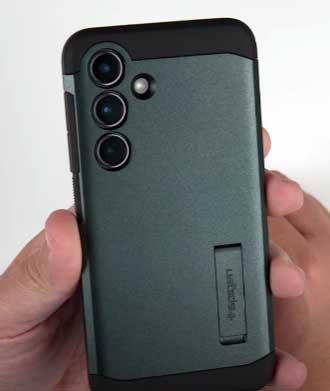
Spigen’s cases are engineered for resilience.
The Tough Armor combines TPU, polycarbonate, and a foam layer for shock absorption, which saved my phone during a biking mishap.
Their Air Cushion technology—air pockets at the corners—adds extra drop protection.
I also love the Ultra Hybrid’s clear back, which shows off my phone’s color while keeping it safe.
Spigen cases are wireless charging compatible, and their buttons are snappy, giving me confidence with every press.
Pros of Spigen
- Superior Protection: Spigen’s cases, like the Tough Armor, are built like tanks. Their multi-layer designs, including TPU, polycarbonate, and foam padding, plus Air Cushion technology, saved my phone from a 6-foot drop during a biking mishap. Military-grade certification gives me peace of mind for rough days.
- Premium Materials: Spigen uses high-quality TPU, polycarbonate, and even metal accents in some models. My Ultra Hybrid’s crystal-clear back and reinforced edges feel luxurious, elevating the case beyond basic protection.
- Long-Lasting Durability: After 18 months, my Spigen Ultra Hybrid still looks brand-new, with no yellowing or significant wear. This longevity makes the higher price feel worthwhile, especially for someone who keeps cases for years.
- Customization Options: Spigen offers more flexibility, like modular cases or color variations. I swapped out the kickstand on my Tough Armor for a different color, which added a fun, personalized touch not available with Caseology.
- Tactile Buttons: The buttons on Spigen cases are crisp and responsive. Whether I’m adjusting volume or powering off, the clicky feedback on my Rugged Armor feels precise, enhancing the user experience during daily use.
- Versatile Lineup: Spigen caters to diverse needs with slim, rugged, and hybrid options. I’ve used their Slim Armor for professional settings and Tough Armor for outdoor adventures, giving me options for every scenario.
- Kickstand Features: Some models, like the Tough Armor, include a built-in kickstand. I’ve used it for hands-free video calls or watching shows, adding practical functionality that Caseology lacks in most cases.
Cons of Spigen
- Higher Price Point: Spigen’s cases, ranging from $12 to $45, can feel pricey. My Tough Armor set me back $35, which was a stretch compared to Caseology’s budget options. It’s a consideration if you’re on a tight budget.
- Bulkier Designs: Rugged models like the Tough Armor add noticeable weight and bulk. While protective, it made my phone less pocket-friendly, which was inconvenient during long days out.
- Less Vibrant Aesthetics: Spigen prioritizes minimalist, professional designs over bold flair. My Ultra Hybrid’s sleek black look is polished but doesn’t stand out like Caseology’s vibrant patterns, which might disappoint style enthusiasts.
- Grip Could Improve: Some Spigen cases, like the Ultra Hybrid, have smooth finishes that feel slippery compared to Caseology’s textured grips. I’ve had a few close calls when my phone nearly slid off a table.
- Limited Budget Options: While Spigen has some affordable cases, their best features are reserved for pricier models. If you want their top-tier protection, you’ll need to spend more, unlike Caseology’s consistent value across its range.
- Weight Trade-Off: The added durability comes with extra weight. My Tough Armor feels heavier than I’d like for casual use, which might bother those who prefer featherlight cases.
Also Read: Is Gold & Cherry iPad Case Worth It?
How Caseology And Spigen Stack Up?
Let’s break this down by key factors to see how Caseology and Spigen compare in real-world use.
- Protection
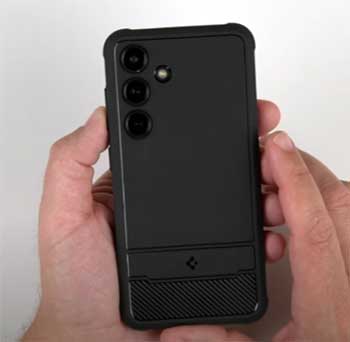
Spigen takes the crown for protection.
Their Tough Armor and Rugged Armor series are built for worst-case scenarios, with multi-layer designs and Air Cushion tech.
I once dropped my phone from a ladder, and the Tough Armor kept it unscathed.
Caseology’s Vault and Parallax offer solid everyday protection, but they’re not as robust for extreme conditions.
If you’re prone to catastrophic drops, Spigen’s your pick. For casual clumsiness, Caseology’s got you covered.
- Design and Aesthetics
Caseology wins for style. Their bold patterns and vibrant colors, like the Parallax’s hexagonal texture, make my phone pop. Spigen’s designs are sleek but often muted, catering to a professional vibe.
If you want a case that doubles as a fashion statement, Caseology’s your go-to. If you prefer understated elegance, Spigen delivers.
- Price and Value
Caseology is the budget champ. I’ve rarely spent over $20 on their cases, and they perform well for the price. Spigen’s higher cost reflects premium materials and durability, but the $30+ price tag can feel steep.
If you’re watching your wallet, Caseology offers great value. If you’re investing in long-term protection, Spigen’s worth the splurge.
- Grip and Comfort
Caseology’s textured designs give me a secure hold, especially on the Parallax, which feels glued to my hand. Spigen’s cases, while reliable, can be slippery, particularly the Ultra Hybrid’s glossy finish.
For grip, Caseology edges out slightly, though Spigen’s ergonomic shapes aren’t far behind.
- Durability and Longevity
Spigen cases last longer. My Ultra Hybrid looks brand-new after heavy use, while my Caseology Parallax showed wear after a year. Spigen’s materials resist yellowing and scratches better, making them ideal for long-term use. Caseology’s cases are durable but may need replacing sooner.
- Wireless Charging and Compatibility
Both brands nail compatibility. I’ve used wireless chargers with Caseology’s Parallax and Spigen’s Tough Armor without issues. Precise cutouts ensure easy access to ports and buttons, though Spigen’s tactile button feedback feels slightly crisper.
When To Choose Each?
I’ve tested these cases in different situations, and here’s what I’ve found works best.
- Commuter Life: If you’re juggling coffee and a phone on a crowded train, Caseology’s grippy, lightweight cases like the Vault are perfect. They’re affordable, stylish, and handle everyday bumps.
- Outdoor Adventures: For hiking or biking, Spigen’s Tough Armor or Rugged Armor is a must. Their robust protection saved my phone during a trail tumble.
- Office Professional: Spigen’s Ultra Hybrid or Slim Armor offers a sleek, polished look that fits a business setting without adding bulk.
- Style Enthusiast: Caseology’s Parallax or Skyfall series lets you flex your personality with vibrant designs that don’t break the bank.
Also Read: Comparison of Casely Classic And Bold Phone Cases.
Frequently Asked Questions (FAQ)
Yes, Caseology cases are great for everyday use, offering stylish designs and solid protection at a budget-friendly price.
They’re protective for daily drops and bumps, with military-grade certification, but they’re not as heavy-duty as Spigen’s rugged options.
Absolutely, Spigen cases are top-tier, with premium materials, excellent drop protection, and long-lasting durability.
Spigen rivals Otterbox in protection, especially with models like Tough Armor, but Otterbox may edge out for extreme conditions.
Conclusion: Your Phone, Your Choice
You’ve got a phone that’s practically an extension of yourself, so picking the right case matters. I’ve shared my experiences with Caseology and Spigen, from their grippy textures to their drop-saving designs, to help you decide.
Caseology’s budget-friendly style is perfect if you want flair without breaking the bank.
Spigen’s rugged, premium cases are ideal if durability is your priority. Weigh your lifestyle—commuter, adventurer, or style guru—and choose what fits. Your phone deserves a case that’s as reliable as it is personal.
